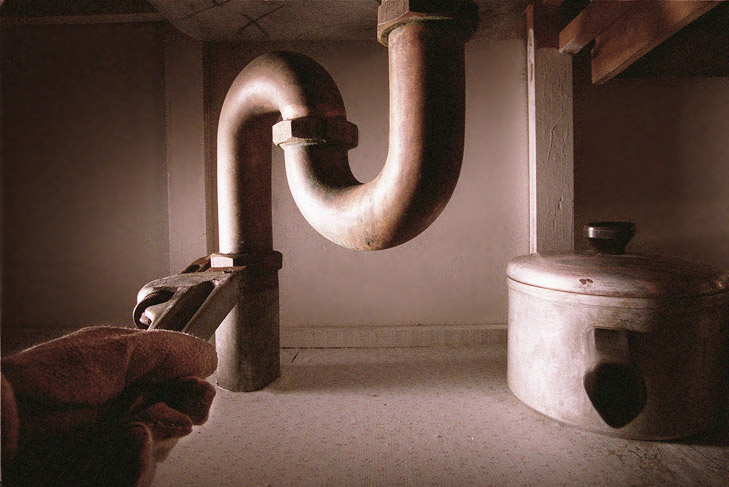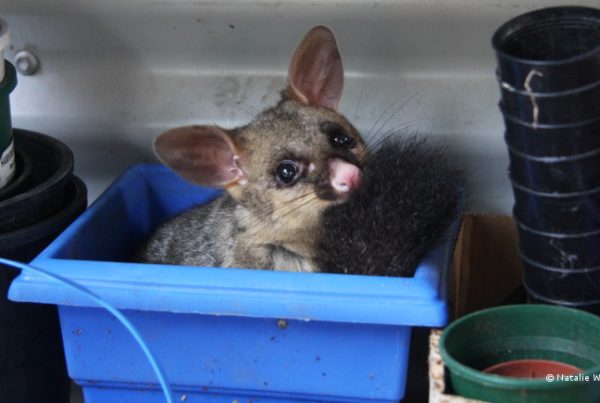With DIY electrical and plumbing work, it’s more about what you can’t do than what you can.
The law is black and white when it comes to working on the electrical and plumbing systems in your home.
If it’s much beyond changing a light bulb or a tap washer, you will probably need to get the relevant licensed tradesperson onto it, if in doubt call a tradie.
The following information is a general overview of just some of the laws and regulations you must be aware of before attempting any work on the electrical and plumbing systems in and around your home.
DIYers can’t really do much more than change light globes.
Don’t be fooled by the array of electrical and plumbing goodies in the hardware shops. You don’t need to be licenced to buy them, but you most certainly need to be licenced to install most of them.
Advertisement
While renovating forums bristle with indignant rants from DIYers who say they could competently lay cables and install pipework themselves, the risks of doing so are great.
The first thing to accept is that there is a real danger of a major accident or death.
Old wiring in your roof may have been damaged by rats chewing through plastic coatings.
Even qualified, experienced electricians have nasty accidents, amateurs can’t begin to understand the complexities of household electrical systems.
Even if you get the job done, there’s no guarantee that it’s been done right. You could be in for a nasty surprise down the track.
On top of that, the fines for illegal work are dizzying and your insurance company certainly won’t cough up if there’s evidence of illegal electrical or plumbing work.
If your wiring resembles this tangle, seek professional help. Tip: 1 Never ever do electrical work yourself, it is illegal and potentially deadly. Tip: 2 If electrical work is done by amateurs, they may survive the job, but people who use the sub-standard end result may not be so lucky, there is always the risk of electrocution and fire.
That said, a good relationship with your plumber or sparkie can often enable a handy DIYer to “assist” with some of the grunt work.
There are plenty of stories of plumbers and electricians who have happily allowed the experienced lay person to dig trenches, help remove redundant pipes and do the messy cutting in to walls, but only under strict supervision from the licensed pro.
Most states require you get a compliance certificate from your tradie for plumbing, gas fitting or electrical work carried out, which guarantees, among other things, that the work complies with the appropriate Australian Standard and that you’re covered for defective work.
Check with your local authority if you’re considering a new rainwater tank.
Word of mouth is always the best recommendation for finding a good plumber or electrician, and you should always do a licence check to verify their licence number and that the licence is current.
You can generally find out where to do this on the website of the licensing authority in your state (see below).
You also want to double check that the type of work to be carried out is permitted under their specific licence.
Plumbing is a lot more complex than it looks.
General rules
Check and double check for power and water when you are doing any of the following:
- any type of demolition work.
- cutting, drilling and nailing into walls, floors and ceilings.
- digging in the garden. Call the “Dial before you dig” number 1100 or visit www.1100.com.au
- conversion of under-roof spaces to storage lofts etc.
- installing insulation products in your roof etc.
- carrying tall items outside like ladders – look up for powerlines.
Electricals
Put down the tools and call a tradie.
Many people incorrectly believe wearing rubber-soled shoes will protect them from an electric shock in an unsafe electrical situation.
Too many people have used extension cords to power something outside the house that are not specifically designed for outdoor use.
DIY electrical work can not be retrospectively certified. It doesn’t matter if it’s 100% compliant and checked by a qualified tradie.
What lies underneath: Pull up floorboards and you can end up with all sorts of nasty surprises.
Even if there are no problems once the work has been completed, issues may become apparent later and as a result of other faults or an emergency situation.
House fires can be a result of poor electrical work. Unqualified people won’t know the appropriate wiring and fittings that must be used under all the different circumstances within a home.
The simple overheating of wiring can cause fires.
What the law says
While rules and regulations vary slightly from state to state, the broad parameters are basically the same.
The detail can sometimes be frustratingly clear as mud, especially if you’re trawling through regulatory websites to get a specific answer to a question.
And calling to get clarification from the consumer hotline can simply land you back at the website.
NSW Fair Trading insists: “An electrical licence is required before any electrical wiring work can be undertaken in NSW, regardless of the cost of the work and regardless of whether the work is residential, commercial or industrial.”
Under their definition electrical work encompasses the manufacturing, constructing, installing, testing, maintaining, repairing, altering, removing or replacing of any electrical equipment.
That pretty much leaves you with replacing lightbulbs.
Queensland has penalties of up to $100,000 or two years imprisonment if illegal work results in serious injury or death. The maximum penalty for multiple deaths is $200,000 or tHicks Real Estatee years imprisonment.
The SA government website states electricians are responsible for work commencing at the point of supply, up to and including:
- the electrical wiring on the consumer’s property from the main switchboard to the building
- wiring within the building to the electrical appliance
- fixed electrical appliances.
Under Queensland’s Electrical Safety Act 2002, forbidden tasks include:
- installing a new power point.
- replacing a light switch.
- replacing a batten holder with a new light fitting.
- repairing an appliance such as a heater.
- altering the location of an existing power point.
- replacing a light fitting with a ceiling fan.
- constructing an extension lead.
- replacing a plug on the end of a lead.
Acceptable tasks for the home owner are:
- replacing a drive belt in a washing machine.
- cutting openings for, but not connecting, air-conditioning units.
- fitting, but not connecting, an electric wall oven in a kitchen cabinet.
You may also be able to:
- rewire old-style fuses.
- install garden lighting and pond pumps.
- install battery-operated smoke detectors.
On top of the penalties for injury or death, The Queensland government website also has the chilling warning that “DIY electrical work is regarded as unlicensed electrical work, which is illegal and has penalties of up to $40,000 for individuals.” Gulp.
The QLD government website notes that only safety switches save lives. Circuit breakers and surge protectors protect appliances not people.
You should also familiarise yourself with the fuse box. It’s a costly exercise to call out an electrician when all you needed was a flick of a switch.
Plumbing and gasfitting
A public information campaign by the Queensland government and the State’s Plumbing Industry Council, called “Who’s doing your plumbing?”, spells out the fairly limited tasks a householder can legally do around the home:
For water plumbing:
- replacing a jumper valve or washer in a tap.
- changing a shower head.
- replacing, in a water closet (WC) cistern, a drop valve washer, float valve washer or suction cup rubber.
- installing or maintaining an irrigation or lawn watering system downstream from an isolating valve, tap or backflow prevention device on the supply pipe for the irrigation or lawn watering system.
For sanitary plumbing and sanitary drainage:
- cleaning or maintaining ground level grates to traps on sanitary drains.
- replacing caps to ground level inspection openings on sanitary drains.
- maintaining an above or below ground irrigation system for the disposal of effluent from an on-site sewerage facility.
Other states are more broadbrush in their scope of works permitted. In Victoria, anyone who undertakes plumbing work is required to be licensed or registered with the Plumbing Industry Commission. Works cover all the following:
- water supply.
- gasfitting.
- sanitary.
- roofing (stormwater).
- drainage.
- mechanical services.
- fire protection or irrigation (non-agricultural).
In WA, the Department of Commerce states a licensed plumber is required to legally carry out water supply, sanitary and drainage plumbing.
Roof plumbing and stormwater drainage, meanwhile, can be performed without the need for a licence.
In NSW, a licence is required before any plumbing, draining or gasfitting (including LP gasfitting) work is done, which includes roof plumbing.
Paul Naylor, national secretary of the Master Plumbers Association, shed some light on what the average person can legally do.
In a nutshell, any work that directly interacts with the installation of the drinking water system or the sewer line requires a licensed plumber.
He says routine repairs to taps, checking on a leak in the pipework under the vanity and even, in some states, changing a stormwater downpipe, are permissible.
However, he did point out that Monday is the generally the biggest day for tradies – fixing up botched jobs from weekend DIYs gone horribly wrong.
Rainwater tanks
Building approval may be required for your tank, depending on size and location, so always check with your local authority when considering a new rainwater tank.
Many local councils have taken the proactive step of developing guidelines for the installation of rainwater tank systems.
The ACT government website is surprisingly liberal in what it specifies the home owner can do, stating:
Taking due care, a handy person can install:
- tanks and stands.
- irrigation systems from a dedicated tank.
- a pressure boosting pump used solely for irrigation.
- rainwater guttering, downpipes and stormwater drains.
A licensed plumber must be engaged to install:
- rainwater plumbing pipes providing water to the house.
- pressure boosting pumps for household rainwater plumbing.
- automatic mains water diverter.
However, do not assume this applies in your state – run your intentions by your local council first.
The bottom line is that many DIYers will choose to hang the risk and perform work that is illegal in order to save a few dollars.
Renovation forums certainly confirm this. They also reveal the DIY disasters that have occurred as a result.
Finding a reliable, reasonably priced tradie could be the best saving you can make.
For more information on:
Plumbing licensing
- ACT www.actpla.act.gov.au
- NSW www.fairtrading.nsw.gov.au
- Queensland www.dIgp.qld.gov.au
- Victoria www.pic.vic.gov.au
- WA www.plumbers.wa.gov.au
Electrical licensing
- ACT www.actpla.act.gov.au
- NSW www.fairtrading.nsw.gov.au
- Victoria www.esv.vic.gov.au
- Qld www.justice.qld.gov.au
- WA www.commerce.wa.gov.au
For more DIY tips and advice visit our
DIY special feature
This information is general in nature and contains just a small amount of information relevant to this topic. This information is just an overview of the issues relating to DIY plumbing and electrical work.
Please consult your local authority for the full details as they relate to your specific circumstances. If in doubt call a qualified tradesperson.
Story by Isobel King, story source: www.domain.com.au
House prices are on the rise. Find out the value of your property now.
Get a free online property report from Hicks Real Estate. It takes seconds.






